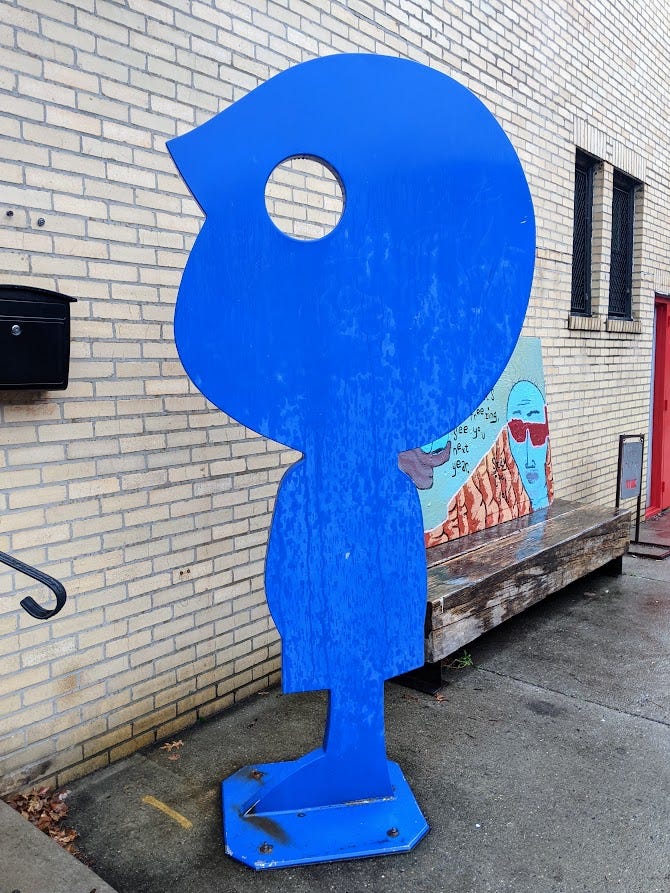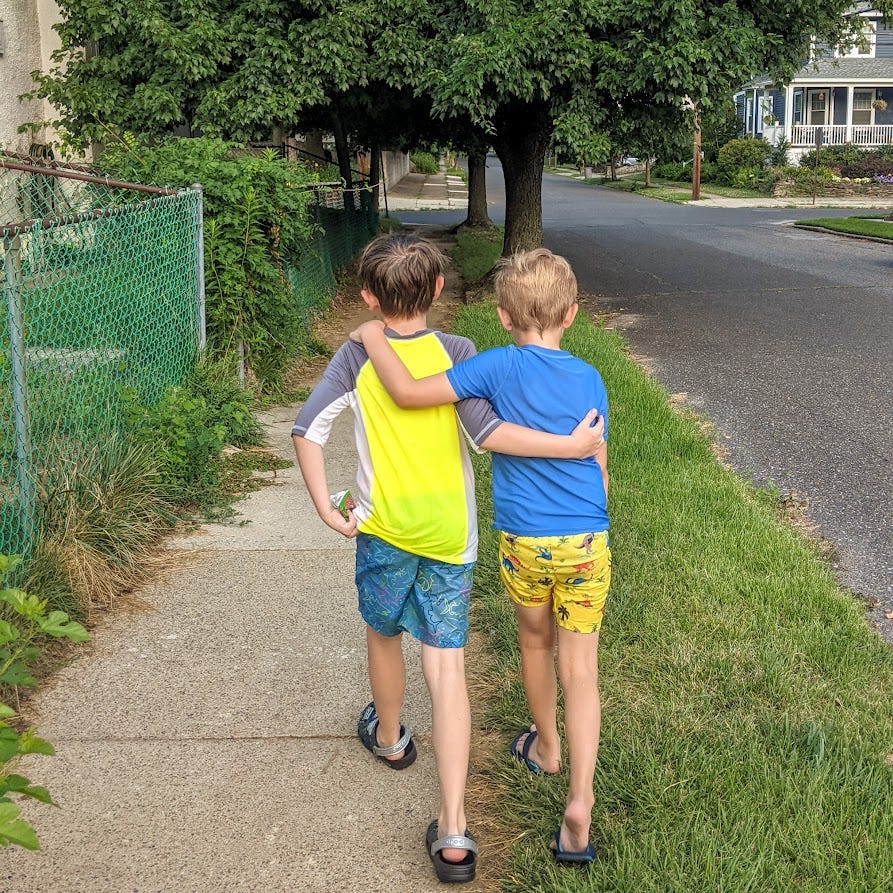when we talk about unconditional love
Larkin, an NYT guest essay, and the joy of parental love
Welcome to good creatures, a section of Write More, Be Less Careful. On good creatures, we’ll round up some of the most interesting conversations and best writing on contemporary mothering. If you think your actual kids are (mostly) great but being a mom is kind of a scam, I think you’ll love it here.
Toward the end of last year, I read a guest essay in The New York Times that I’ve been thinking about since then. In it, Ruth Whippman posed what I initially thought was an interesting question: Can We Really Love Our Children Unconditionally? Based on that headline, I’d expected to find an essay grappling with the limits of parental love. I was primed to think about what it would mean, for example, to continue to love your child after they’d caused someone grievous harm, or a parent might support a child whose addiction made them unreliable or manipulative.
Instead, the essay turns out to be about . . . liking your kids less because of how they behave at piano lessons. Whippman’s sons practice with less than stellar focus, and one child declares to the piano teacher that he only likes “meme music or video game music.” (I’d count that as fairly standard-issue musical taste for a sixth grader, but Whippman sees her child, in this declaration of a personal preference, as “both sulky and gleeful at the mortification he has unleashed in my soul.”)
All of this takes place, of course, against the backdrop of Whippman’s fraught relationship with her own mother, whose approval she worked assiduously to earn. About her efforts to excel in music as her mother wished, Whippman observes that “although I never truly believed that my mother’s love was conditional, I did have the nagging suspicion that there was a performance-related bonus in there.”
(Some people really will write an entire New York Times guest essay instead of going to therapy.)
There are genuine heartrending situations that challenge the limits of what would ideally be a parent’s unconditional love for their child. But to decide that you maybe love your child less because they don’t love piano, or they don’t love it in the exact way you want them to? Honestly: that sucks.
What I think is interesting about this essay is how it gets both parenting and love so deeply wrong.
Loving your kid doesn’t mean thinking everything they do is great, or giving into their every whim, or liking every choice they make. It’s deeply normal to love your kid and also feel, every once in a while, that they’re being kind of a dick.
But the good news is: your job isn’t to shape your kid into your image, or an improved version of your image, had your mother loved you more fully and your father been less distant, or whatever your particular sludge of issues consists of. When you have a kid, you get a person, not a lump of play-doh.
I see so much of myself in my children. It is so hard to watch them struggle in the same ways I’ve struggled, and I wish that I could spare them the social anxieties, the impatience, the self-judgment that have plagued me. (Also: the way my younger child, as a toddler, when a toy wasn’t working or his block tower fell, would whisper got-damnit, and it was like hearing my own irritated voice emerge from his tiny mouth.) And I do my best, but they have their own lives to live, too.
Watching your child become their own particular person is one of the purest pleasures of parenting. Why would you steal that joy from yourself by trying to shape them into something else?
But there are also quirks and traits that are so indisputably their own. My younger son has taken to doing a sort of faux-tap dance as he watched TV. My older son is developing his own sly sense of humor.
And part of having parents and being parents is accepting that we’re going to make mistakes. We’re going to come up short. We’re going to lose our temper and have to apologize. Sometimes we will, as the phrase goes, be the asshole. All of that to say: being a parent is like any other human relationship.
So much of parenting is thankless or exhausting or just boring–the socks to be matched! the endless block towers built and knocked over! the details of Minecraft and Roblox discussed at length!--but watching a little lumpen baby evolve into a real person, with quirks and talents and oddball turns of phrase? That’s the absolute best.
Watching your child become their own particular person is one of the purest pleasures of parenting. Why would you steal that joy from yourself by trying to shape them into something else?
I’d love to hear from you. You can always reply to this email, comment below, or find me on twitter (@nancy_reddy) and instagram (@nancy.o.reddy).
If you’ve enjoyed this newsletter, I’d love it if you would share it or send it to a friend.






I'm always struck by how writers will write about their children as though their children will never learn to read and Google.
It can be a tough balance to navigate how to write about your kids and your relationship to them. On the one hand, writers have a right to tell their story and goodness knows that motherhood is a fertile place for content. On the other... don't be a dick.